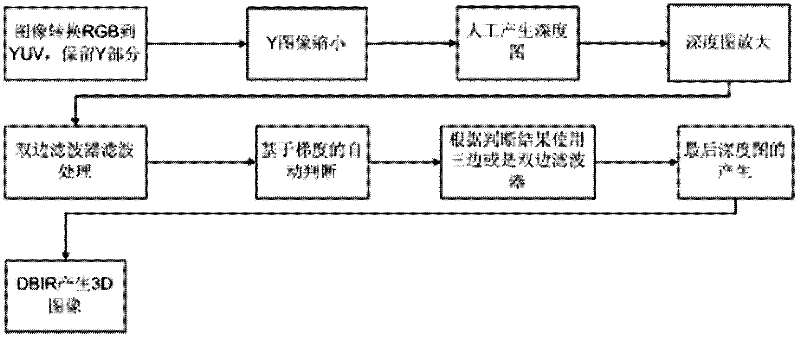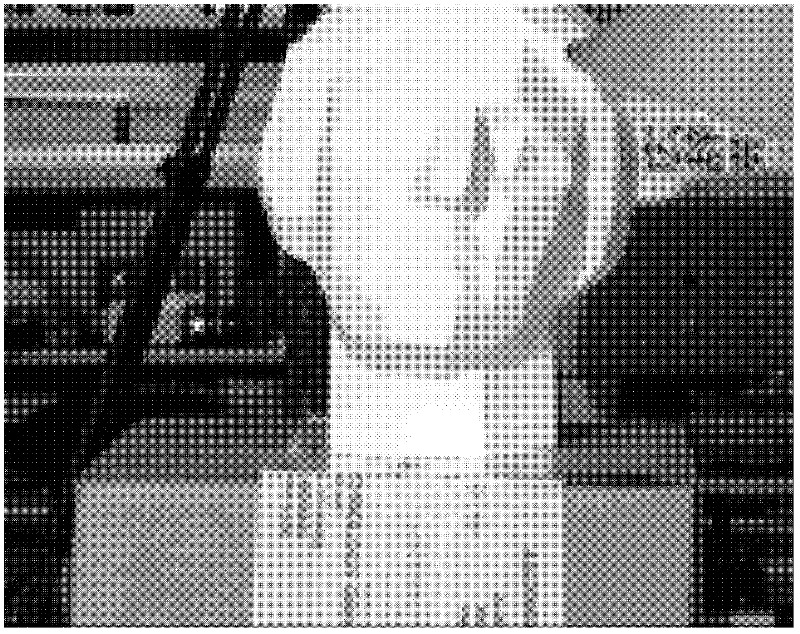Method for optimizing 2D (two-dimensional) to 3D (three-dimensional) conversion of video work
An optimization method and technology of works, applied to color TV parts, TV system parts, TVs, etc., can solve problems such as production obstacles, dual-lens synchronous focusing, shooting speed reduction, post-production difficulties, etc., and achieve manual operation The effect of volume reduction
- Summary
- Abstract
- Description
- Claims
- Application Information
AI Technical Summary
Problems solved by technology
Method used
Image
Examples
Embodiment
[0048] The operation steps of the present invention are as figure 2 shown.
[0049] 1. Convert the image from color RGB mode to YUV mode. Since the present invention only requires brightness, it only needs to convert from YUV to Y without U and V parts.
[0050] The formula for RGB conversion Y is as follows:
[0051] Y=0.299R+0.587G+0.114B
[0052] Among them, Y represents the pixel value converted into a brightness map, and R, G, and B represent the red, green, and blue pixel values of each pixel before conversion. like image 3 As shown, it is to convert the image from the color RGB mode to the YUV mode.
[0053] 2. Reduce the original image. Generally, for a movie image with 4K resolution, it can be reduced by 8 times in the horizontal and vertical directions, that is, a reduced image with the size of 1 / 64 of the original image will be generated. The reduction method may adopt a bilinear filter (bilinear filter) or a bi-cubic interpolation filter (bicubic filter) ...
PUM
 Login to View More
Login to View More Abstract
Description
Claims
Application Information
 Login to View More
Login to View More - R&D
- Intellectual Property
- Life Sciences
- Materials
- Tech Scout
- Unparalleled Data Quality
- Higher Quality Content
- 60% Fewer Hallucinations
Browse by: Latest US Patents, China's latest patents, Technical Efficacy Thesaurus, Application Domain, Technology Topic, Popular Technical Reports.
© 2025 PatSnap. All rights reserved.Legal|Privacy policy|Modern Slavery Act Transparency Statement|Sitemap|About US| Contact US: help@patsnap.com



